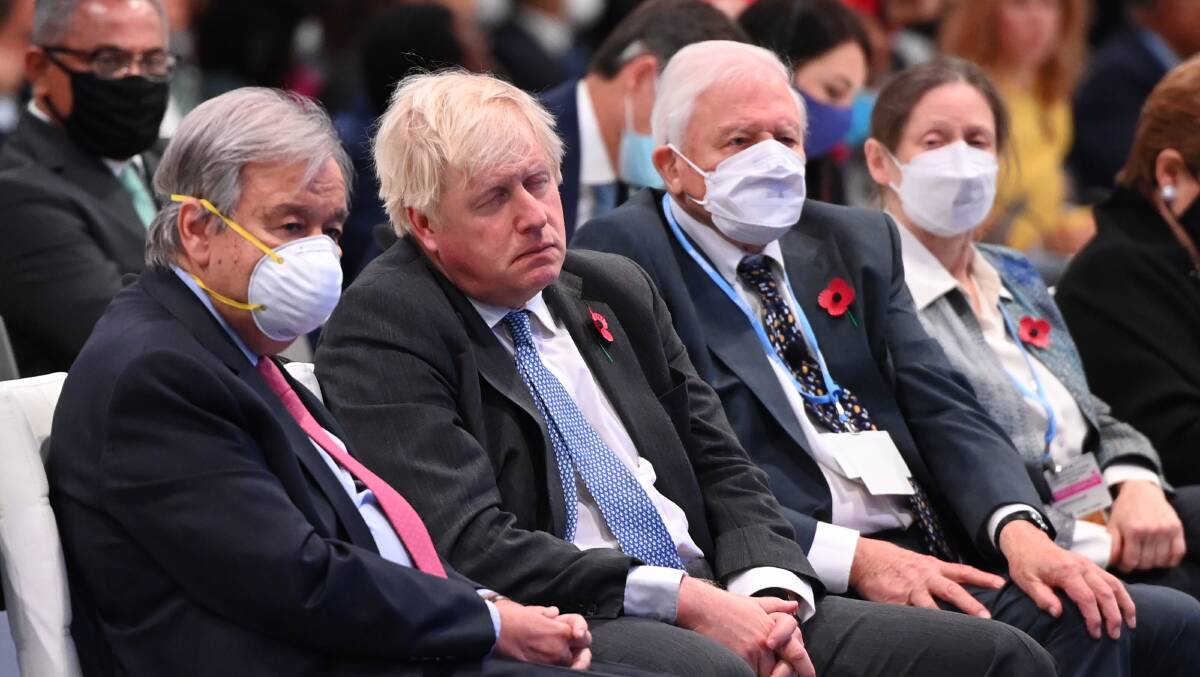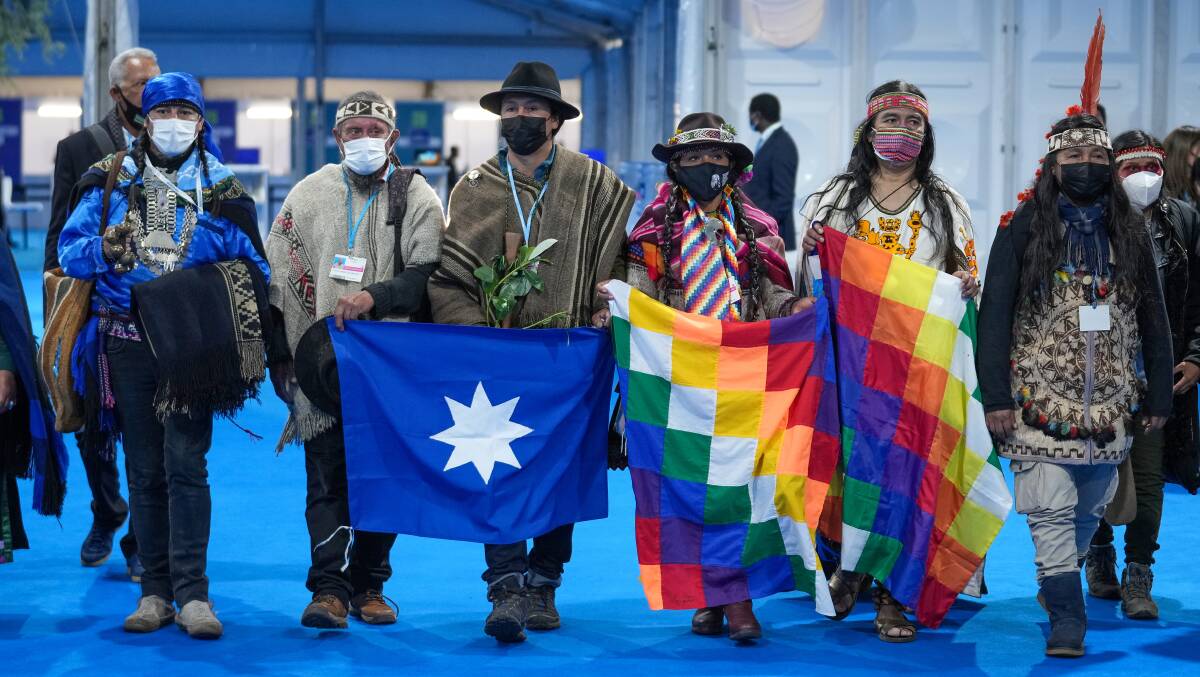
If you were following the proceedings at COP26 in Glasgow over the past few weeks, you might have noticed a conspicuous absence - that of First Nations people.
Subscribe now for unlimited access.
or signup to continue reading
The exclusion of First Nations people from decision-making at the conference denied us the platform we needed to fight the existential threat many of our communities face from climate change, and keep warming under 1.5 degrees. First Nations activists and community leaders were "on the outside looking in, trying to carve out space for their people".
Many First Nations groups struggled with obstacles to access the summit, including accreditation, visas, and a myriad of COVID-related rules. Many of these groups came from areas hardest-hit by our changing climate across the Global South, with droughts, bushfires, storms, and rising sea levels impacting not only First Nations land, but our way of life.
When it came to Australia, First Nations interests here were represented not by our government, but by activists in the non-governmental space. The lack of powerful representation led to Australia helping water down the final summit commitments, something directly opposed to our interests.
This lack of presence and voice from First Nations people was despite our protection of 80 per cent of the world's biodiversity, while representing only 6 per cent of the global population. We are "not mere victims"; our traditional knowledges and work to combat climate change have much to offer in tackling a problem of this scale.
Yet our voices remained on the sidelines of COP26. As long as we have no place in the international community in climate change discussions, such summits will remain what Ita Mendoza, an indigenous land defender from southern Mexico, called "a continuation of colonialism, where people come not to listen to us, but to make money from our land and natural resources".

This should not be of much surprise to anyone. First Nations people have long faced exclusion within foreign policy. We are not seen as genuine actors in the international system, and thus not eligible for a seat at the table.
Especially within Australia, First Nations peoples are seen as a mainly domestic constituency who are unaffected by external affairs, and therefore have little to contribute to issues within foreign and defence policy. The international system was designed around the exclusion of First Nations peoples, even with our unique and unceded sovereignties, and the practice of foreign policy within states such as Australia has continued this exclusion. This is a fundamental aspect of settler-state colonialism, and is well-practised by Australia at every level.
First Nations people from this country have made great contributions within the international arena. We were heavily involved in the formation of the UN Declaration on the Rights of Indigenous Peoples in 2007, and have been active in both the UN Permanent Forum on Indigenous Issues and the Expert Mechanism on the Rights of Indigenous Peoples; with UNSW Professor Megan Davis having served as chair of both bodies in the last six years.
We also have unique relational ways of being when it comes to understanding the world, and have perspectives on foreign policy issues, including climate change, that are ignored by the mainstream.
To quote a First Nations delegate from COP26: "We're here offering sustainable solutions to the rest of the world that require an ideological shift, not a green industry built on colonialism and repression. It's up to them if they listen or not." It does not appear the world is ready to listen or engage with us on our own terms, and this is especially true in Australia.
Australia has had less than half a dozen First Nations ambassadors in our history, the first of these having been appointed only in 2013, with 3.2 per cent of Department of Foreign Affairs and Trade staff being First Nations.
READ MORE:
The department launched its first Indigenous Peoples Strategy in 2015, and revamped this as an Indigenous Diplomacy Agenda in May this year. Neither of these policies involved strong consultation with First Nations people or communities, and neither of them engages with us on our own terms; the department has set its agenda, regardless of what we might want, or what contributions we might have to make. Both are outside its scope.
It has been six months since this last agenda became public, and in that time, we have seen very little update on its direction or implementation. While I wrote back in May that the agenda was a step in the right direction, this was premised on the department actioning its agenda, and taking steps to ensure it was developed properly with community input. Neither of these things have occurred, and there is no indication that minister Marise Payne or secretary Kathryn Campbell have shown any commitment to them, unlike Campbell's predecessor Frances Adamson.
This lack of support for a truly inclusive First Nations agenda within the Department of Foreign Affairs and Trade does more than just exclude us from the business of government - it also causes actual harm. An agenda that First Nations communities have not exercised self-determination and leadership in developing excludes us from policy decisions that severely impact on our people, communities, and lands, and relegates us to the international sidelines.
The policies set at COP26, and efforts to keep warming below 1.5 degrees, will have an outsized effect on First Nations people; for us not to have a representative presence is active harm. On other issues, such as our global rights, exploitative mineral extraction, and even Australia's engagement within its region, our lack of voice in these policy areas has the same effect.
The government needs to do better when it comes to First Nations people and climate change, as does the international community. We lack a true voice both at home and overseas on climate change, and this lack of voice will kill us.
- James Blackwell is a proud Wiradjuri man and research fellow in Indigenous policy at UNSW's Centre for Social Impact. He is also a visiting fellow at the ANU's Coral Bell School of Asia Pacific Affairs.

